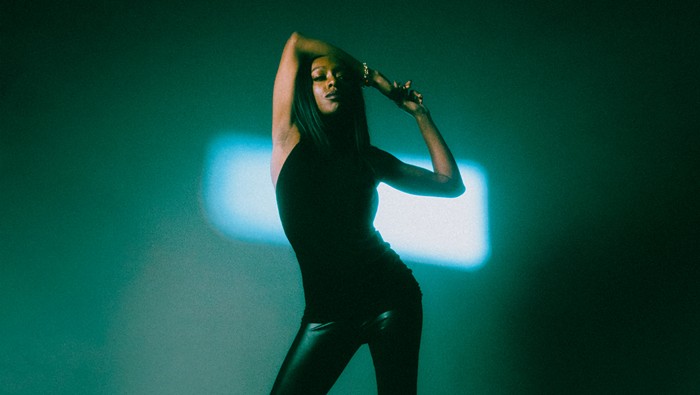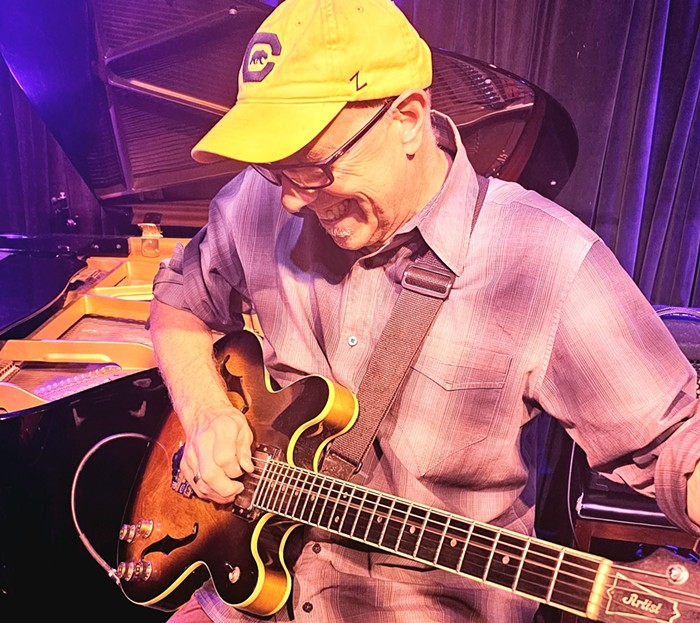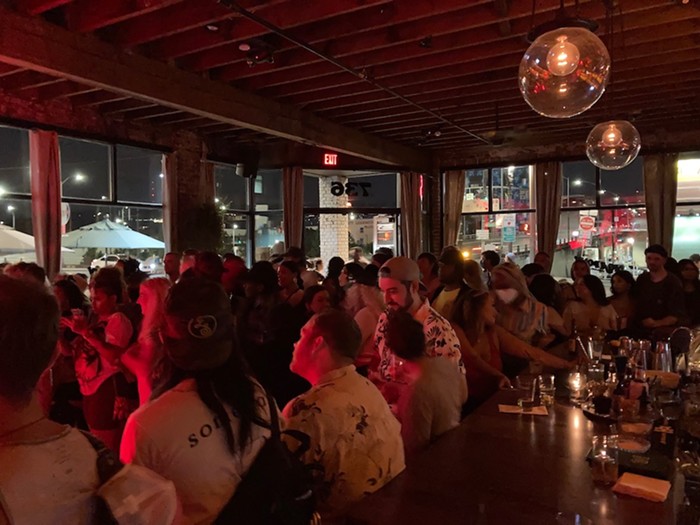SAVAGES aren't kidding around. The group's website is full of manifestos and statements of intent that proclaim the band a "self-affirming voice to help experience our girlfriends differently, our husbands, our jobs, our erotic life, and the place music occupies into our lives." They post signs at shows asking the audience to put away their phones. The cover of their fantastic debut, Silence Yourself, instructs the listener to shed distractions, turn down the chatter, and focus. The opening track puts it more succinctly: "Shut Up."
"We see the band as a kind of form for an idea, in a way," says guitarist Gemma Thompson over the phone from a café in Madison, Wisconsin, where the four women in the British post-punk band—which also includes singer Jehnny Beth, bassist Ayse Hassan, and drummer Fay Milton—are currently stopped while on their biggest US tour to date. "We're constrained in the fact that we're a four-piece: We've got guitar, drums, and vocals. That's a very minimal kind of tribal, primitive format, and to try to get certain ideas out through that simple form I think is what really interests us. It's not so much about being a band, but actually using its form to get across a performance.
By this point, you've probably decided whether or not the band's philosophy and self-serious overtones are too much, but their bold, stark, occasionally caustic revisiting of punk rock's artsier offshoots commands attention. Considering they played their first show in January 2012, Savages didn't wait long before that attention found them.
"Everything happened quite quickly," confirms the guitarist. "We wanted to put focus on the performances. Before we had even written anything—with the name, we wanted to put attention and energy and all of that into the performance."
"We knew the best way to follow our instincts," Thompson continues, "to be very direct and bold and go forward with what we knew, or what we thought we knew. So when we started writing together, we came together with that process, to create a kind of direct sound. Don't use anything that isn't necessary, and just use that same idea across everything: across the aesthetic, across the performance, across all of that. I think it was quite instinctive from the beginning."
When it came to putting that approach to tape, Savages put a few guidelines in place when making Silence Yourself; the band was free to explore different sounds, as long as those sounds remained in the confines of the instrument, and anything recorded had to be able to be replicated live. As stated in "Savages Manifesto No. 1," the band's intention is "to create a sound, indestructible, musically solid" that's "written for the stage." A Savages show isn't a place for things like Twitter and Instagram, which is why they'd rather you put your smartphone away.
"Most people do respect that, actually," Thompson says. "It comes from our experience of going to gigs and performing—just trying to be more surrounded by what you're seeing and to really experience it as it is, instead of feeling it necessary to try and capture something. Once you're there, actually experience it."



















